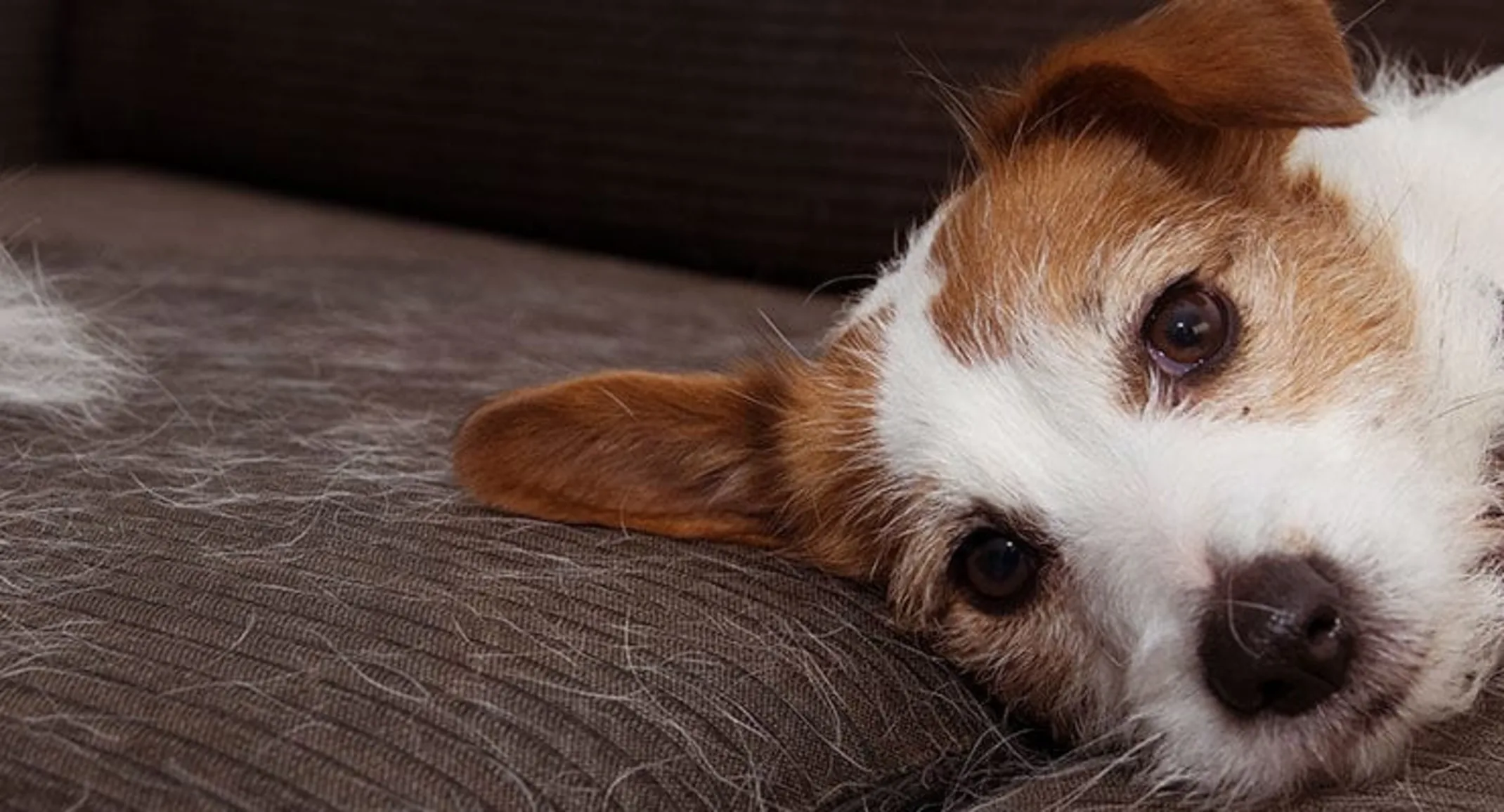
Why is My Dog Shedding So Much All of a Sudden? Reasons Revealed
Share
As a pet owner, a sudden increase in your dog's shedding can be concerning. Many health-conscious pet owners ponder, why is my dog shedding so much all of a sudden? Understanding the various reasons behind this phenomenon is essential for maintaining your pet's well-being and comfort.
Shedding is a normal process for dogs, but when it occurs excessively or suddenly, it may indicate underlying health issues, changes in environment, or even dietary concerns. In this article, we will explore the primary causes of increased shedding, how to manage it, and when to seek veterinary advice.

Recognizing Normal Shedding Patterns
Before delving into the reasons behind excessive shedding, it's important to understand normal shedding patterns. All dogs shed, but some breeds are more prone to shedding than others. For example, double-coated breeds like Huskies experience seasonal shedding, where they lose their undercoat during warmer months.
In contrast, single-coated breeds like Poodles tend to shed less. However, sudden behavioral or environmental changes can affect shedding, regardless of breed. Keeping a close eye on your dog's shedding patterns can help you identify significant shifts.

Common Reasons for Sudden Shedding in Dogs
There are several reasons your dog may be shedding more than usual. Here are some common culprits:
1. Seasonal Changes
As the seasons change, many dogs shed their fur to adapt to new temperatures. This natural process allows your dog's coat to stay comfortable, with thicker fur for winter and lighter fur for summer. If you notice increased shedding in spring or fall, it may simply be your dog preparing for the changing weather.
2. Stress and Anxiety
Dogs can experience stress and anxiety due to various factors such as moving to a new home, the arrival of a new family member, or loud noises like fireworks. Stress can lead to excessive shedding, as your dog may react to their anxiety by losing more fur than usual. Monitor your dog for signs of stress and provide a calming environment.
3. Allergies
Allergies are a common reason for increased shedding. Dogs can be sensitive to various allergens, including pollen, dust mites, certain foods, or fleas. If your dog is shedding more and showing signs of itching or discomfort, they may have an allergy. Consulting with a veterinarian can help identify specific allergens that may be affecting your dog.
4. Poor Nutrition
A lack of essential nutrients in your dog's diet can also contribute to excessive shedding. Health-conscious pet owners should ensure their pets are receiving a balanced diet rich in vitamins, minerals, and fatty acids. Foods containing omega-3 and omega-6 fatty acids help promote a healthy coat and reduce shedding. For more information on what ingredients to avoid in dog food, check out our guide here.
5. Medical Conditions
Underlying medical conditions can also lead to sudden shedding. Health issues such as hormonal imbalances, skin infections, or thyroid problems may cause your dog to lose more fur than normal. If you notice persistent shedding accompanied by other symptoms like lethargy or changes in eating habits, seeking veterinary help is essential.

How to Manage Excessive Shedding
Once you understand the potential reasons behind your dog's sudden shedding, you can take appropriate steps to manage the situation:
1. Regular Grooming
Frequent grooming can help manage shedding and remove loose fur before it spreads throughout your home. Regular brushing can also promote healthy skin and coat by distributing natural oils. Depending on your dog's coat type, consider using a slicker brush, bristle brush, or undercoat rake.
2. Balanced Diet
Ensuring your dog receives a well-balanced diet is critical to reducing excessive shedding. Choose dog food containing high-quality ingredients and consult your veterinarian for specialized dietary recommendations. For a detailed look at home remedies for shedding, consider our post on how to stop dog shedding here.
3. Creating a Stress-Free Environment
Try to eliminate potential stressors in your dog's life. This may involve creating a calm atmosphere through safe spaces or toys that provide comfort. You can also consider establishing a routine that includes regular playtime and exercise, which can help reduce anxiety.
4. Veterinary Check-Up
If your dogs shedding continues unabated, it is essential to visit a veterinarian. They can assess your dog's health and determine whether any medical conditions could be contributing to the excessive shedding.

When to Seek Veterinary Help
As a responsible pet owner, understanding when to seek professional help is crucial. If your dog's shedding is accompanied by:
- Redness or inflammation of the skin
- Excessive itching or licking
- Hair loss in patches
- Weight loss or changes in appetite
- Sudden changes in behavior
These could be signs of a more serious issue that requires medical attention.
Conclusion
In conclusion, there are several reasons behind a sudden increase in your dog's shedding. By identifying the cause and taking proactive measures, you can help maintain your dog's coat and overall health. If you have further concerns about shedding or your pet's health, consider visiting the American Kennel Club's website for additional resources.
Frequently Asked Questions
1. Is shedding a sign of a health problem?
Excessive shedding can indicate a health issue, especially if accompanied by other symptoms. It's vital to monitor your dogs overall health and consult your veterinarian if concerned.
2. How often should I groom my dog to reduce shedding?
Regular grooming should be part of your dog's routine. For most dogs, brushing once a week is sufficient, while long-haired breeds may require more frequent grooming to manage shedding.
3. Can I change my dog's diet to help with shedding?
Yes, improving your dogs diet can help reduce shedding. Ensure a balanced diet that includes essential fatty acids and consult your veterinarian for specific dietary advice.
As an Amazon Associate, I earn from qualifying purchases.
